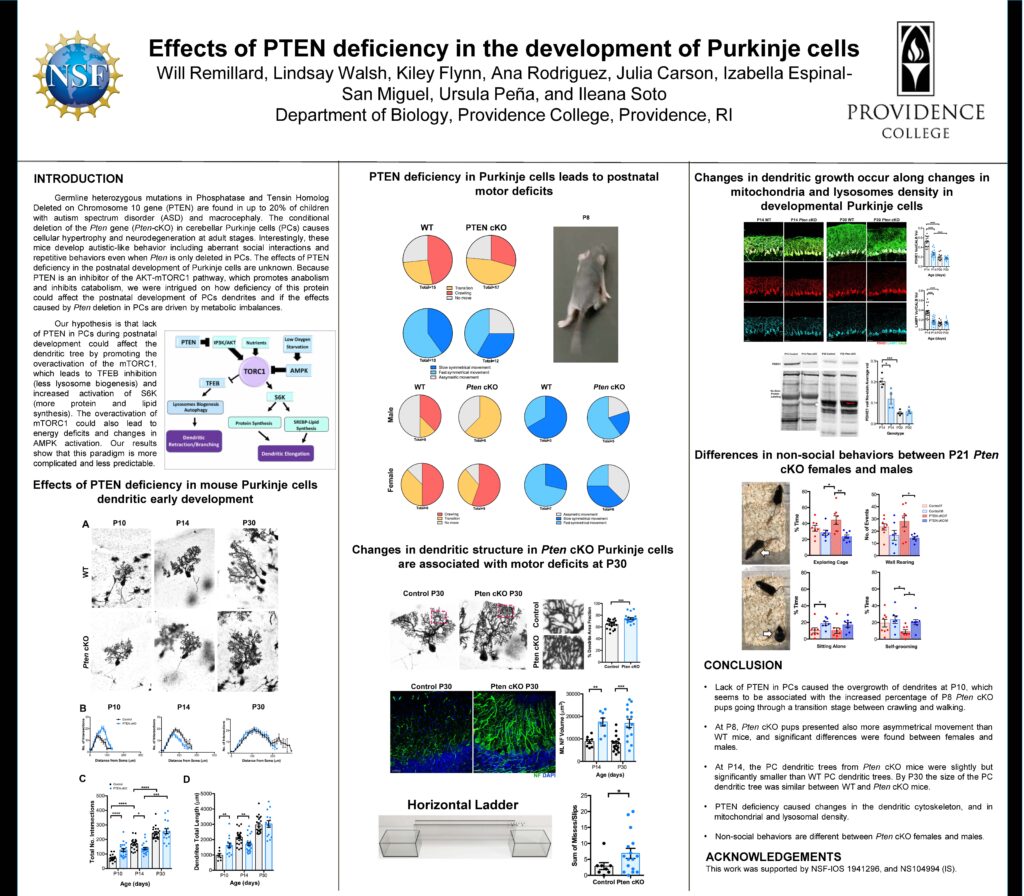Will Remillard ’24

PTEN deficiency in developmental Purkinje cells alters dendritic development leading to deficits in mouse neonatal motor skills and behavior.
Will Remillard ’24, Biology and Psychology majors, Neuroscience Certificate Program
Faculty Mentor: Dr. Ileana Soto Reyes, Biology
Poster Presentation: Wednesday, April 24, 1:30 – 3 p.m.
Germline heterozygous mutations in Phosphatase and Tensin Homolog Deleted on Chromosome 10 gene (PTEN) are found in up to 20% of children with autism spectrum disorder (ASD) and macrocephaly. The conditional deletion of the Pten gene (Pten-cKO) in cerebellar Purkinje cells (PCs) causes cellular hypertrophy and neurodegeneration. Interestingly, these mice develop autistic-like behavior that includes aberrant social interactions and repetitive behaviors even when Pten is only deleted in PCs. Studies in our laboratory using Pten-cKO mice have been showing morphological changes in PC dendrites at postnatal days 10 (P10) and 14 (P14), as determined by analysis of Golgi-Cox-stained cerebellar slices. Additionally, Pten-cKO PCs immunostained with Calbindin, PDHA1 (mitochondria), and LAMP1 (lysosomes) antibodies showed decreased levels of dendritic-mitochondria and lysosomes at P14 but normalized at P30. Neonatal motor tests have been used in the lab to determine the effects of Pten deficiency in the development of motor skills. Our preliminary results are suggesting that lack of PTEN is affecting primarily Pten-cKO males when compared to Pten-cKO females and control mice. However, at 21 days, Pten-cKO females showed differences in non-social behaviors during the juvenile play test when compared to Pten-cKO males and control mice. Overall, our data suggest that lack of PTEN in PCs affect the dendritic development of these cells leading to motor deficits and behavioral changes.






